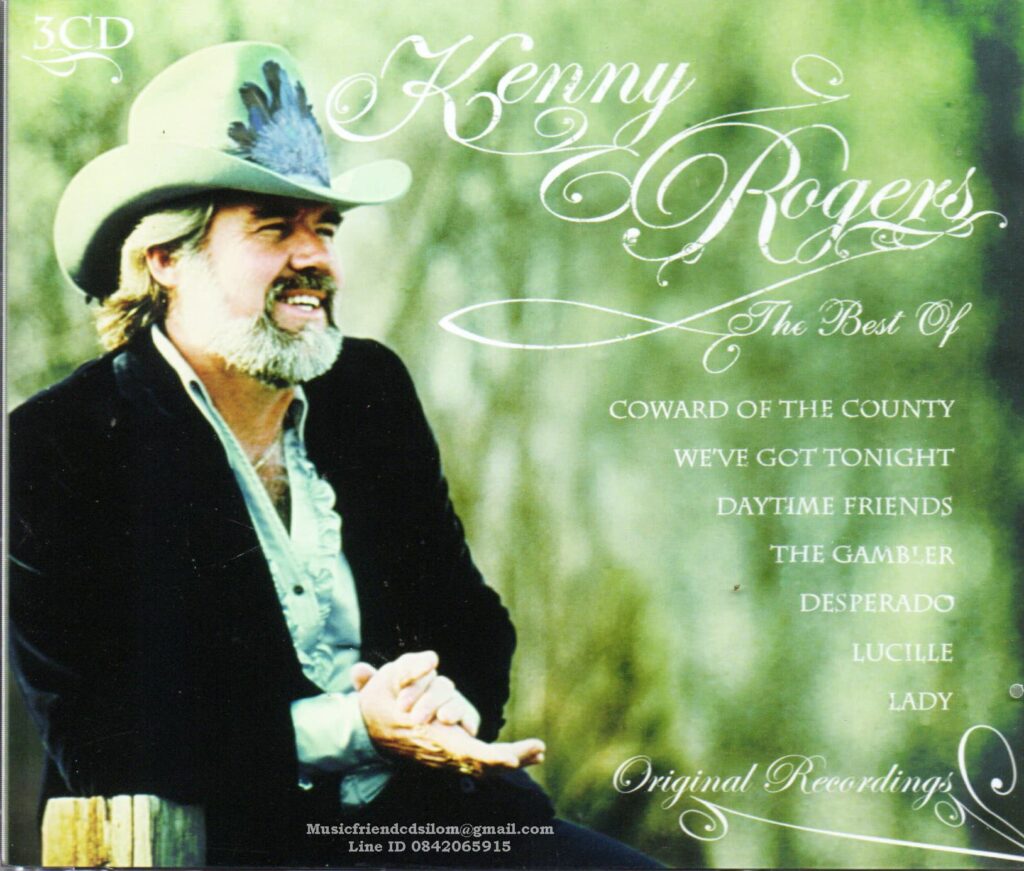
The Weary Embrace of a Comforting Vice
Let’s settle into a comfortable chair and dim the lights, allowing our minds to wander back to a golden age of storytelling in song. Few artists possessed the unique ability to spin a yarn with such a rich, comforting baritone and a knowing wink as Kenny Rogers. He was more than just a singer; he was a troubadour of the common man, his voice weaving tales of love, loss, and the everyday struggles that resonate deeply within us all. Today, we’re pouring over a particular track that might not be his most famous chart-topper, but one that captures a raw, authentic glimpse into the solace found in a familiar habit: “Tennessee Bottle.”
“Tennessee Bottle” was released in 1978, a year that solidified Kenny Rogers’s transition from a country-rock pioneer with The First Edition to an unparalleled solo superstar. This reflective track was featured on his immensely popular album “The Gambler,” an album that became a phenomenon, not just in country music but across genres. “The Gambler” itself was a colossal success, reaching number one on the Billboard Top Country Albums chart and peaking at number 12 on the all-genre Billboard 200, eventually selling over five million copies in the US alone. While “Tennessee Bottle” was not released as a standalone single (the album’s title track, “The Gambler,” was the massive hit), its presence on such a landmark album meant it was heard by millions of listeners. It became a beloved album cut, deeply appreciated by fans for its honest portrayal of human frailty and the search for comfort, reinforcing Rogers’s reputation as a singer who understood the nuances of the human condition.
The story behind “Tennessee Bottle” is rooted in the insightful songwriting of Carl Perkins, the legendary rockabilly pioneer known for classics like “Blue Suede Shoes.” Perkins, a brilliant and often underrated composer, penned this song, offering a poignant look at a life seeking comfort in a specific, personal ritual. When Kenny Rogers chose to include it on “The Gambler,” it was a testament to his discerning taste for material that went beyond simple pop appeal. Rogers had a knack for selecting songs that offered depth and character, turning them into relatable narratives with his distinctive delivery. He understood that while “The Gambler” focused on daring and risk, “Tennessee Bottle” offered a quieter, more vulnerable side of life’s coping mechanisms. Rogers’s gravelly yet warm vocal perfectly embodies the weary contemplation of someone finding solace in a familiar, perhaps melancholic, routine. It speaks to the private moments of reflection, where one turns to a quiet habit for a sense of peace or escape.
The meaning of “Tennessee Bottle” is a candid exploration of finding a consistent, albeit perhaps self-medicating, source of comfort in the face of life’s complexities and loneliness. The “Tennessee Bottle” isn’t just about the liquor itself; it’s a metaphor for a reliable companion, a steady presence that offers a predictable sense of calm when the world feels overwhelming. The lyrics suggest a person who has seen enough of life’s struggles and now seeks simple, personal solace. Lines like “Old Tennessee bottle, you’re the only friend I know / And if I should ever leave you, tell me where else can I go?” convey a deep sense of attachment and dependence, highlighting the bittersweet comfort found in this habitual companion. It’s not a celebratory ode to drinking, but a weary, honest acknowledgment of a coping mechanism, a quiet, almost resigned acceptance of one’s chosen path to peace. For older listeners, this song resonates with the understanding that life rarely offers simple solutions, and sometimes, comfort is found in the most unexpected or even seemingly mundane rituals.
Listening to “Tennessee Bottle” today, it offers a moment of quiet reflection, delivered with Kenny Rogers’s masterful ease. His voice, slightly raspy but always warm and inviting, makes the listener feel like they’re hearing a trusted friend share a deeply personal thought. The instrumentation is classic country-pop, understated yet effective, allowing Rogers’s narrative to take center stage. It transports us to those solitary moments of contemplation, perhaps on a quiet evening, when the world outside recedes, and one finds a peculiar peace in a familiar habit. This song stands as a powerful testament to Rogers’s ability to imbue even the simplest lyrics with profound emotional weight, creating a timeless piece that continues to resonate with anyone who has ever sought a quiet harbor from life’s storms.